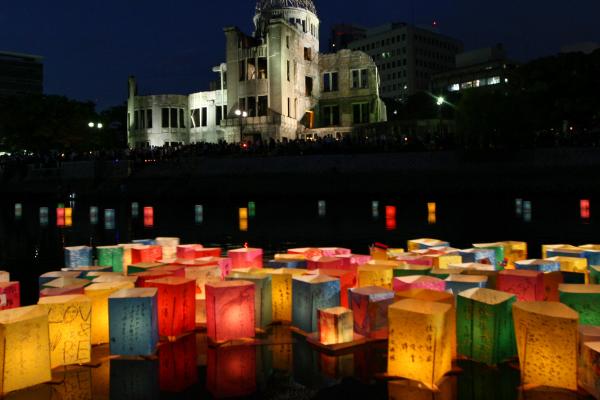Sixty-seven years ago today, at 8:15 on the morning of August 6, 1945, it was a sunny morning in Hiroshima, Japan, a city of more than 300,000 people. Some were on their way to work, children were playing in the streets. Suddenly the sky exploded in a brilliant and hellish flash of light as a 15 kiloton nuclear bomb was dropped from a U.S. plane in the sky overhead. More than 70,000 people were instantly killed, some with their bodies etched into the pavement like eerie shadows. By the end of the year, as many as 140,000 had died, after five years, the toll was estimated as high as 200,000. Three days after Hiroshima, on August 9, 1945, a second nuclear bomb was used against Nagasaki, Japan. An estimated 75,000 people were killed in that explosion.
Today, according to the Associated Press, the annual ceremonies held in Hiroshima’s peace park to commemorate the bombing were attended by 50,000 people, including representatives from 70 countries. Two Americans with family ties to the bombings also attended.
Read the Full Article

